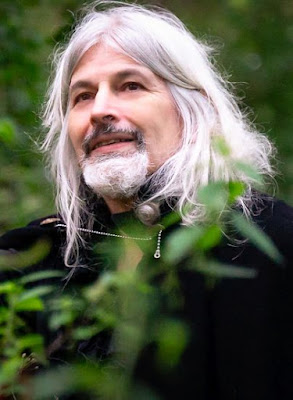Ciara asks me to the summer festival a month after my adoption from foster care.
All growth spurts and brown eyes, she’s the first of my classmates to welcome me to my new town. When we first kiss under an awning strung with fairylights, the flowers in the pots and wreaths around us bloom wild and fragrant.
The night before her parents ship her off to boarding school, Ciara presses her lips to mine as if for the final time. “I’m sorry, Emily,” she sniffles, pulling away from me: her parents’ goal all along.
She leaves behind the scent of cut roses dying in their vase.
§
Cecily wants to make apricot jam. She doesn’t order me to stop moping around the house and go shopping with her. When she starts the car, however, she leaves the passenger door open in invitation. I cross our front garden, the April grass crunching dry and brittle beneath my feet. My adoptive mother prides herself on our garden’s biodiversity. But now most plants have yellowed. Their leaves stick like hay to my sneakers as I climb inside the car and let Cecily fiddle with the radio in silence.
While Cecily inspects the fruits in the produce aisle, tutting at the bruised skins among the apricots painted like a tie-dye sunset, a shopping cart bumps into ours.
“Excuse me,” the woman behind it says. Once she takes a better look at me, however, she falls silent. I recognize her as Ciara’s mother, dressed in a business suit, holding herself prim and proper.
“Why?” I ask, the word like a sob ripped out of my throat. Why did you steal her from me? Why did you take away my sunlight?
“I don’t know what you’re talking about,” Ciara’s mother insists, but her eyes tell a different story.
She’s even taken Ciara’s phone away and had the school destroy all my letters addressed to her.
Cecily comes up behind me, laying a gentle hand on my shoulder—when did I start shaking? Under her calm stare, Ciara’s mother huffs and wheels her cart away.
I turn around to thank Cecily, but she’s no longer looking at me. Her eyes are wide as they take in the apricot still held in her palm. Black juice oozes between her fingers, the formerly pastel-colored fruit now a shriveled, charcoal stone.
I whirl around the produce aisle. Every fruit and vegetable has suffered a similar fate.
§
Soil cracks like poorly fired pottery. Shrubs and herbs wilt dead, while ash-gray flowers fold in half on groaning stalks. Everything smells like rotten tomatoes and sickly-sweet nectar, like milk spoiling in the sun.
Cecily’s beloved garden, ruined. We worked on it together after we moved here, the first thing we did as a family. Side by side, hands in the dirt, roots safely cradled by the soil, and for the first time I felt cared-for and content.
When I don’t emerge from my bedroom all day, she knocks gently on my door.
“I’m sorry about your garden,” I mumble against my pillow. I can’t look at her face in the doorway, for fear of seeing the anger I deserve. “I don’t know how to make it stop.”
“Don’t be sorry,” she says, her weight settling on the bed beside me. “You did what you had to do. Externalized your emotions so you wouldn’t feel like this on the inside.”
I turn around to face Cecily. Her expression is sad but determined as she gently settles her hand over the bedcovers. “Emily, I don’t want your heart wilting and withering.”
“But I miss her,” I whisper, and even the words hurt. “There’s no Spring without her. She has no flowers in that gray, cold place.”
I’ve heard of the boarding school Ciara has been exiled to, and it’s little more than a luxury conversion camp. She feels so far away from me, she might as well have been trapped in the Underworld.
A warm smile spreads across Cecily’s face. “Then why don’t we bring Spring to her?”
§
Ciara stands in her dorm room’s second-floor window, shadowed by the metal bars trapping her inside. Her smile glints silver in the darkness, and I feel like a wingless magpie.
“Emily! You’re really here,” Ciara exclaims, a balmy breeze caressing my skin. It comes as a relief that the teachings of shame and self-hatred haven’t changed my beautiful girl.
I close my eyes and picture her safely held in my arms, her lips on mine, my hand in hers. The limp rose bushes around the steel-gray building quiver. Sparse ivy shoots forth vines that climb up the wall and rip the bars away from the window. The vines twine into a swing, cradling Ciara as she is lowered onto solid ground.
I offer her a single pink rose. If I play it cool, maybe she’ll ignore the tears staining my cheeks.
Cecily, who has been watching the scene unfold from a respectful distance, clears her throat. “I’ll start your getaway car.”
Ciara lunges into my arms, causing us both to fall onto the ground. I expect my back to hit hard soil. Instead, we’re both hugged by silk-soft grass.
“It’s okay, you don’t have to go back,” I say.
Ciara shudders in my arms. She holds on tighter.
When the gates open and angry adult voices reach us, we scramble upright and run to Cecily’s car, piling into the backseat.
“Girls,” Cecily greets in her unflappable voice. “Fasten your seatbelts, we’re going home.”
“Home?” Ciara asks, looking between us with her huge, brown eyes.
“Our home,” Cecily clarifies, “until we figure things out. My guest room is yours for as long as you want.”
All the way back, Ciara nuzzles the crook of my neck. Inside every pothole and through every crack in the tarmac, resilient dandelions bloom.
Avra Margariti is a queer author, Greek sea monster, and Rhysling-nominated poet with a fondness for the dark and the darling. Avra’s work haunts publications such as Strange Horizons, The Deadlands, F&SF, Podcastle, Asimov’s, Vastarien, and Reckoning. You can find Avra on Twitter @avramargariti.
“The Flowers I Grew for Her” was first published in If There’s Anyone Left.
Have a Kindle? Find out what you’ve been missing!
Buy the four latest issues with just one click!
(Or buy just one, if that’s what you’d really prefer.)

















































.jpg)

